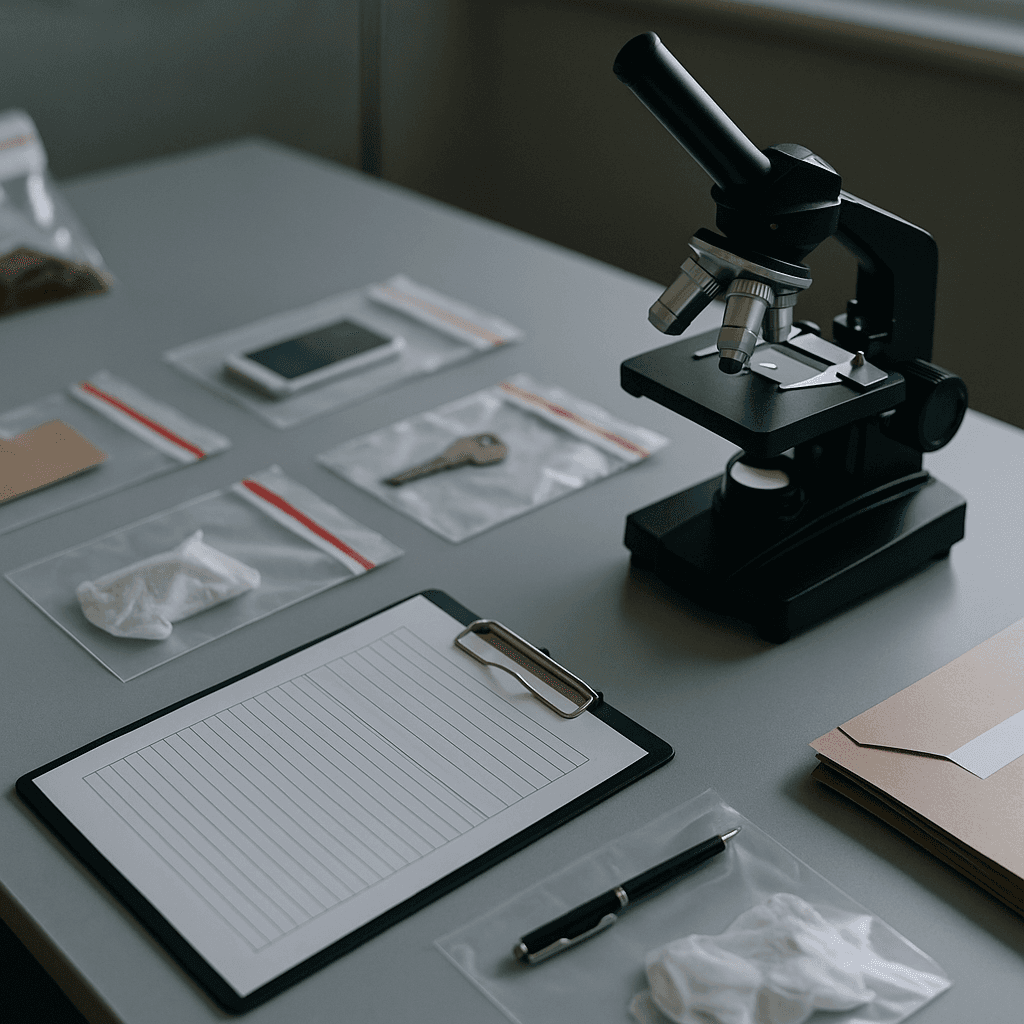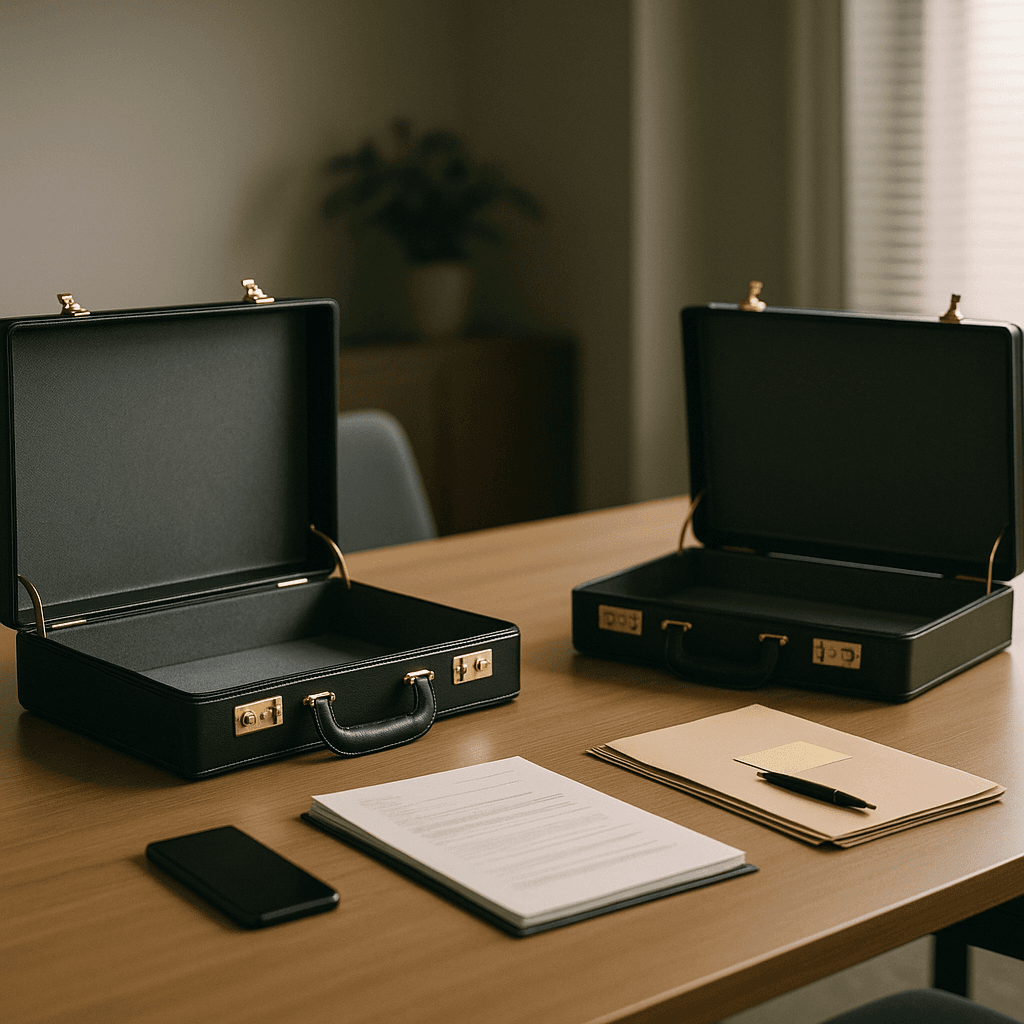
What to Expect During Your First Meeting With a Personal Injury Attorney

Making the Decision to Meet With an Attorney
After an accident, many people hesitate before contacting a lawyer, often because of misconceptions about what that first meeting entails. Some fear it will be overwhelming, expensive, or unnecessary if the insurance company seems cooperative. In reality, the first consultation is a chance to gain clarity—not pressure. It's an opportunity to understand your rights, evaluate your case, and decide on the best path forward.
This initial meeting sets the tone for your entire claim. It helps establish trust, outlines expectations, and ensures your attorney has the information needed to begin building your case. Dispelling common misunderstandings about personal injury claims—like the idea that all lawsuits are drawn out or overly complicated—can make this process feel less intimidating. It's important to remember that these assumptions are rarely accurate and often based on common myths about personal injury lawsuits rather than reality. Understanding the truth about how these cases work empowers you to approach your first meeting with confidence and preparedness.
What You Should Bring to Your First Meeting
When you meet with an attorney, preparation is key. Bring any documents that can help explain what happened and how it affected you. This might include medical records, police reports, witness statements, photographs, or correspondence with insurance companies. The more information you provide, the better your attorney can assess your situation.
At this stage, your medical documentation will be especially important. Records of treatment, diagnosis, and prognosis create a detailed timeline of how the injury developed and how it continues to impact your life. They show both the physical and financial consequences of the accident, making them one of the strongest forms of evidence you can offer. Comprehensive and organized medical proof often shapes the direction of a case, as it provides the foundation for demonstrating liability and damages. This highlights why medical documentation plays such a vital role in supporting your claim, much like the principles described in the importance of medical documentation in your claim.
How Attorneys Evaluate Your Case
Once your attorney has reviewed your materials, they will start assessing your claim. They'll look for key legal elements—duty of care, breach, causation, and damages—and how the evidence supports each one. They'll also ask questions to fill in gaps or clarify details, such as how the accident occurred, what symptoms you've experienced, and what treatment you've received so far.
Attorneys don't expect you to have all the answers during this meeting. Their goal is to determine whether there's a solid legal basis for your case and what challenges might arise. They'll discuss possible outcomes, estimate timelines, and explain what compensation might be available. In addition, they'll outline how evidence and documentation will be used throughout the process, emphasizing that proof—not just verbal accounts—drives success.
The attorney's analysis will also take into account how the case will progress over time. Understanding the timeline of a personal injury case from accident to settlement can help set realistic expectations about what comes next and how long each step may take. This includes everything from investigation and negotiation to possible litigation, as explained in the timeline of a personal injury case from accident to settlement.
Discussing the Role of Evidence
Evidence forms the backbone of any personal injury case. During your first meeting, your attorney will likely talk about the types of evidence that will strengthen your claim and what might still need to be gathered. This includes not only medical reports but also witness statements, photographs, video footage, and correspondence with insurers or employers.
Your lawyer may also explain how this evidence will be used strategically during different phases of your case—especially in negotiations or court proceedings. They'll help you understand that collecting and preserving high-quality proof can be the deciding factor between a fair settlement and a denied claim. From the moment your attorney takes on the case, they begin crafting a narrative built on facts and verifiable documentation. This focus on thorough, organized proof mirrors the idea found in evidence that can make or break your claim, where solid records determine the strength and outcome of a case.
Understanding What Comes Next
After the initial consultation, your attorney will outline the next steps in the process. This typically includes gathering additional evidence, notifying insurance companies, and preparing for potential litigation. You'll also learn about your role—what information you'll need to provide, which medical treatments to continue, and how communication will be handled moving forward.
If your case proceeds to the litigation phase, one of the most important stages will be discovery, when both parties exchange evidence and take depositions. During this process, the strength of your initial documentation and witness testimony will become clear. Discovery is not something to fear—it's a structured, rule-based procedure designed to ensure fairness and transparency. Your attorney will guide you through it step by step, ensuring your side of the story is supported by credible evidence. The process underscores how preparation in the early stages pays off later, aligning closely with the approach detailed in what happens during discovery in a personal injury lawsuit.
Setting Expectations and Understanding Fees
One of the most common concerns people have before meeting an attorney is cost. Fortunately, most personal injury attorneys work on a contingency fee basis, meaning you don't pay unless your case is successful. During your first consultation, your attorney will explain this structure clearly so you understand how fees and expenses are handled.
They'll also discuss what you can expect from them in terms of communication, updates, and responsiveness. Establishing these expectations early ensures a smooth working relationship and avoids confusion down the line. Remember, your attorney's role is not only to advocate for you but also to educate you on the process so you feel informed and confident every step of the way.
How the Initial Meeting Shapes the Entire Case
The first consultation is more than an introduction—it's the foundation for your entire legal journey. It allows your attorney to evaluate your situation, plan a strategy, and set the stage for a strong case. What you share during this meeting helps determine how the case will be built, from evidence collection to negotiations and, if necessary, trial.
Bringing complete and accurate documentation, asking questions, and being honest about the details of your accident all contribute to a more effective partnership. Even small pieces of information can make a big difference when combined with medical and factual evidence.
If you're unsure about whether your case is strong enough or fear the process will be too complicated, it's worth remembering that much of what people believe about lawsuits simply isn't true. Many claims resolve efficiently and fairly when handled by professionals who know how to navigate the system—a point reinforced by addressing common myths and misconceptions surrounding injury law.
Building Trust and Taking the First Step
Ultimately, your first meeting with an attorney should leave you with a sense of clarity and reassurance. It's the beginning of a partnership built on transparency, evidence, and advocacy. A skilled legal team will use your story, your documentation, and your trust to create a path toward justice and compensation.
Approach the consultation as a collaborative process—one that empowers you to take control of your recovery and your rights. With preparation, honesty, and the right representation, that first meeting is not the start of a stressful process but the beginning of resolution and recovery.
Blog Posts:

The Role of Expert Witnesses in Injury Litigation
Why Expert Witnesses Matter in Personal Injury Cases In personal injury litigation, facts alone are often not enough. While evidence like medical records, photographs, and witness statements paint part of the picture, juries and insurance companies frequently need context and explanation to understand the full scope of an injury and its impact. This is where expert witnesses play a pivotal role. Expert witnesses are professionals—often doctors, engineers, economists, or accident reconstruction specialists—who provide testimony based on their specialized knowledge. Their objective is not to advocate for one side but to clarify complex issues that require professional interpretation. In many cases, their opinions help bridge the gap between evidence and understanding, making them critical to achieving fair compensation.

How Insurance Companies Evaluate Injury Claims
How the Evaluation Process Really Works When you file a personal injury claim, the insurance company begins a process that is anything but simple. Behind every offer or denial, there's a calculated evaluation designed to protect their bottom line. Insurers use data-driven methods, past claim outcomes, and internal guidelines to assess how much—if anything—they believe your case is worth. The goal of the insurance adjuster is straightforward: to settle your claim for as little as possible while closing the file quickly. They'll review your medical records, accident details, and even statements you've made to determine liability and damages. The more organized and detailed your claim presentation, the harder it is for them to undervalue it.

The Dangers of Handling a Personal Injury Case Without Legal Help
Understanding What's at Stake After an accident, it's natural to want to resolve things quickly. Medical bills begin piling up, your work may be disrupted, and insurance adjusters often seem eager to "help." Many people believe they can handle their personal injury claim on their own—especially if the situation seems straightforward. But personal injury law is complex, and even minor missteps can lead to significant financial loss. Without professional guidance, you may underestimate your claim's value, miss critical deadlines, or make statements that insurers later use against you. The legal process is designed to protect both sides, and insurance companies have experienced professionals working to limit payouts. Without an equally skilled advocate on your side, you're at a clear disadvantage. That's why consulting a personal injury lawyer early in the process is often the difference between fair compensation and a costly mistake.

When Should You Switch to a Different Injury Lawyer?
Knowing When It's Time for a Change Choosing the right attorney after an accident is one of the most important decisions you'll make in your recovery journey. However, not every lawyer-client relationship is a perfect fit. Sometimes, despite your best efforts, you may realize that your current representation isn't meeting your expectations. Whether it's poor communication, lack of progress, or a sense that your case isn't being handled effectively, recognizing when to switch attorneys can make all the difference in the outcome of your claim. Switching to a new personal injury lawyer doesn't mean starting over from scratch—it means taking control of your case and ensuring it receives the attention and effort it deserves. Understanding what to expect from your legal representation can help you identify the warning signs that it might be time for a change.
Get an agent on the line in seconds
Responsive
Legal Assistance
Our personal injury attorneys advocate for the funds necessary to cover bills, secure medical treatment, recoup lost wages, and provide compensation for your pain and suffering.
Are you facing unfair treatment from the insurance company?
Do you know the value of your case?
Is the insurance company asserting that the accident is your responsibility?

We'll get back to you ASAP.
Get Your Free Consultation
You Pay Nothing Unless We Recover Compensation For You
